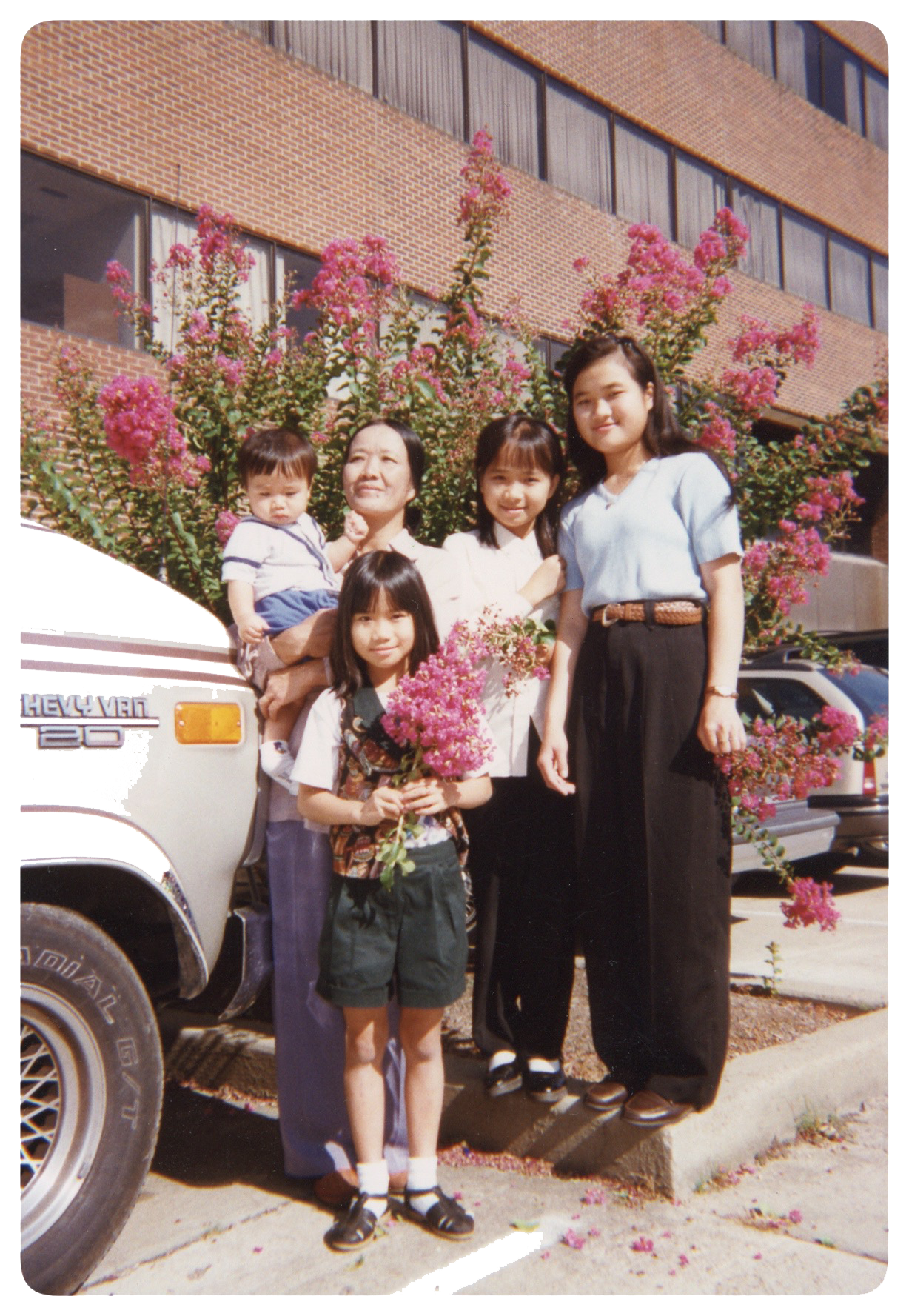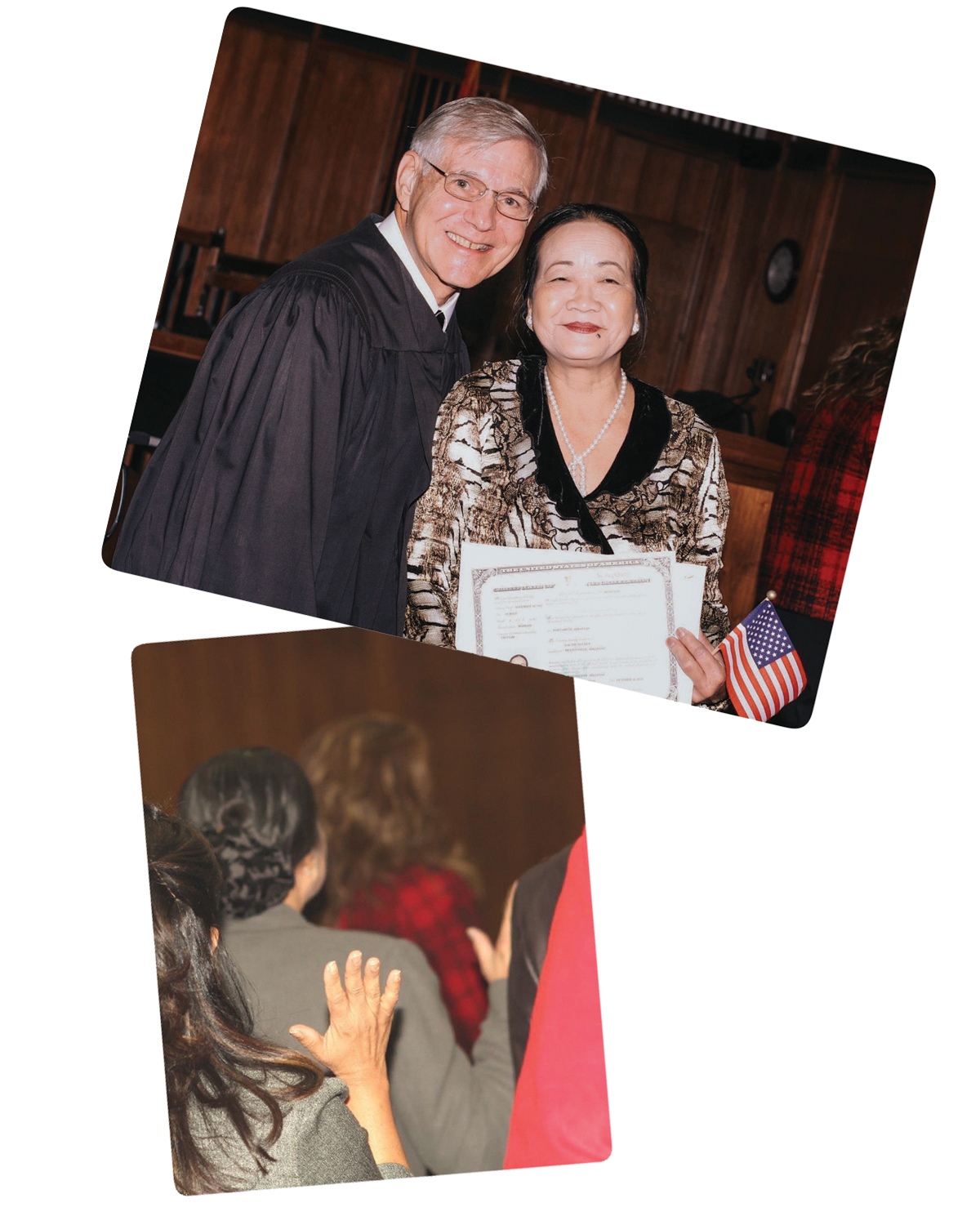What is a refugee?
1995. Tram’s passport photo. Age 6.
In order to understand the flight of refugees and immigrants in our community, I believe it is important to understand the basic definitions of these identities.
A refugee, according to the United Nations High Commissioner for Refugees (UNHCR), is “ someone who has been forced to flee his or her country because of persecution, war or violence. A refugee has a well-founded fear of persecution for reasons of race, religion, nationality, political opinion or membership in a particular social group. Most likely, they cannot return home or are afraid to do so. War and ethnic, tribal, and religious violence are leading causes of refugees fleeing their countries.” Source
An immigrant is a person who comes to live permanently in a foreign country. This can include someone living in a country other than their birth country by choice, or due to circumstances beyond their control. The word “immigrant” is more commonly used in North America, while terms such as “international migrant”, “foreign born”, or “migrant” are used more universally.
A refugee is a type of immigrant. Here in the US, a refugee must undergo a rigorous, years-long process before arriving in the US. They obtain refugee status outside the country, travel here with the US government's invitation, and immediately gain full legal status upon arrival. In the migrant process, refugees are the most thoroughly vetted immigrants. Source
It is important to note, in the past decade, the term 'asylum' has become a significant part of discussions on refugees and immigrants. An asylum-seeker is a person facing persecution, whose aim is to secure refugee status (or asylum) within the US or at its border. While awaiting government review, they hold provisional legal status. Upon decision, they may be granted asylum, becoming asylees (refugees), or be denied and instructed to return home. It's a legal process with varying outcomes.
1997, Little Rock, AR to get our green cards done. Pictured: My mom, my baby brother, my middle sister, my oldest sister, and me in the front.
2012, My mom at her citizenship ceremony. She is pictured swearing in along with the judge presiding over the ceremony.
An immigrant who has been given permanent residency can also be referred to as a resident alien or permanent resident, which means they are considered an immigrant who has been legally and lawfully recorded as a resident of the country. In the United States they often carry “green cards” to signify their residency status. As a permanent resident, they are required to pay federal and state taxes, however they do not hold any federal voting rights. There are some states that make exceptions in regard to state and local elections. Source
In the United States, a permanent resident is eligible to apply for citizenship after 5 years, or 3 years if the person is married to a US citizen. Applying for a US citizen costs $725 and puts the applicants through a 2-part test. The first is an “English test, which as has three components: reading, writing, and speaking.” The second part is a civics test. The civics test covers important US history and government topics. There are 100 civics questions on the naturalization test. During the naturalization interview, an applicant will be asked up to 10 questions from the list of 100 questions. He or she must answer correctly 6 of the 10 questions to pass the civics test. Source
When my family first arrived in the US, we arrived as refugees under the US Humanitarian Operation (HO), a subprogram of the Orderly Departure Program (ODP), for former reeducation camp prisoners of the Vietnam war.
The ODP was a program to permit immigration of Vietnamese to the United States and to other countries. It was created in 1979 under the auspices of the UNHCR.
In the summer of 1997, we applied for green cards, giving us resident alien/permanent resident status. After 10 years, my dad applied for his US citizenship. Being a minor at the time, I received my citizenship when he passed the tests to receive his. Both of my older sisters followed his steps a few years later and, in February of 2012, my mom passed hers, making our family all US citizens.
For over 27 years, we have called America our home. I’m incredibly grateful to my parents who made the difficult decision to leave their homeland. They believe in a better future for me and my siblings. I’m in awe of their resilience and how they navigated our immigrant journey. I hope that my project, What We Carry, honors them and the many refugees and immigrants resettling in our communities today.
Until next time,
LEARN MORE ABOUT MY PROJECT, WHAT WE CARRY.




